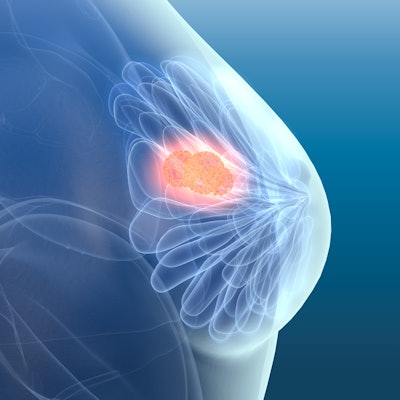
Veracyte said the genomic underpinnings of its Prosigna breast cancer gene signature assay, particularly its relative weighting of genes predicting tumor proliferation, may explain the classifier's higher likelihood of predicting long-term risk of recurrence among certain breast cancer patients, compared with other breast cancer tests.
The study, published online October 27 in the Journal of Clinical Oncology, compared the commercial forms of four breast cancer recurrence risk tests: the Prosigna Prediction Analysis of Microarray 50 (PAM50) risk of recurrence, the Oncotype DX recurrence score, EndoPredict, and the Breast Cancer Index.
Lead author Richard Buus, PhD, and colleagues expanded upon previous research evaluating the same tests using an identical dataset and compared their ability to accurately predict 10-year distant disease recurrence. The new study sought to determine why these tests commonly generate discordant results and thereby help inform long-term therapeutic decision-making.
The researchers evaluated 785 patient samples from the Trans Anastrozole, Tamoxifen Alone or in Combination (TransATAC) clinical trial dataset and compared recurrence risk scores from each of the four tests, including the molecular features driving each of the scores.
There was low correlation between the Oncotype DX and Prosigna scores, and between the Oncotype DX and Breast Cancer Index scores. Genes predicting tumor proliferation accounted for 72.5% of the difference between the Oncotype DX risk score and Prosigna score. The genes also accounted for 54.3% of the difference between the Oncotype DX and Breast Cancer Index scores.
The researchers also found that the Prosigna risk of recurrence score relies most heavily on proliferation-related features, while the Oncotype DX score is determined much more strongly by estrogen-related features.



















